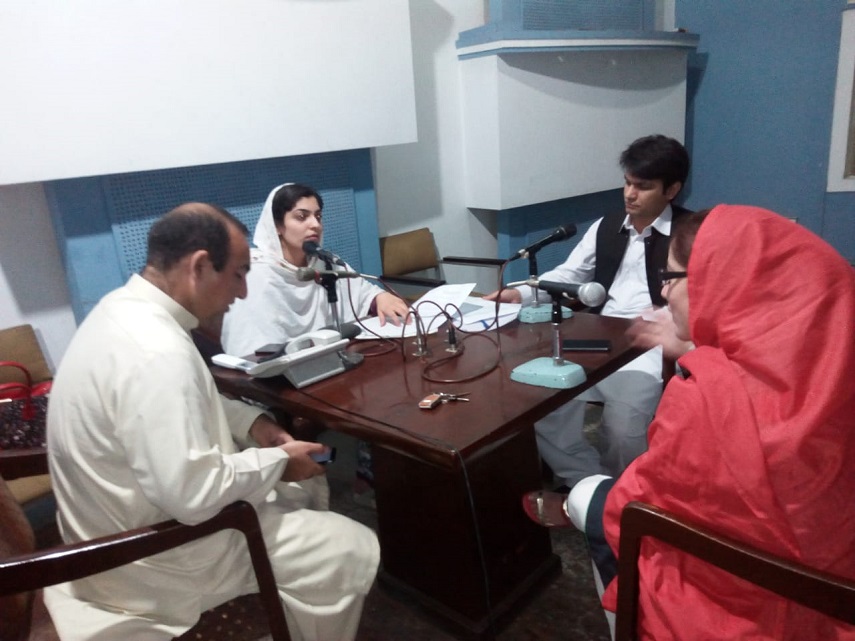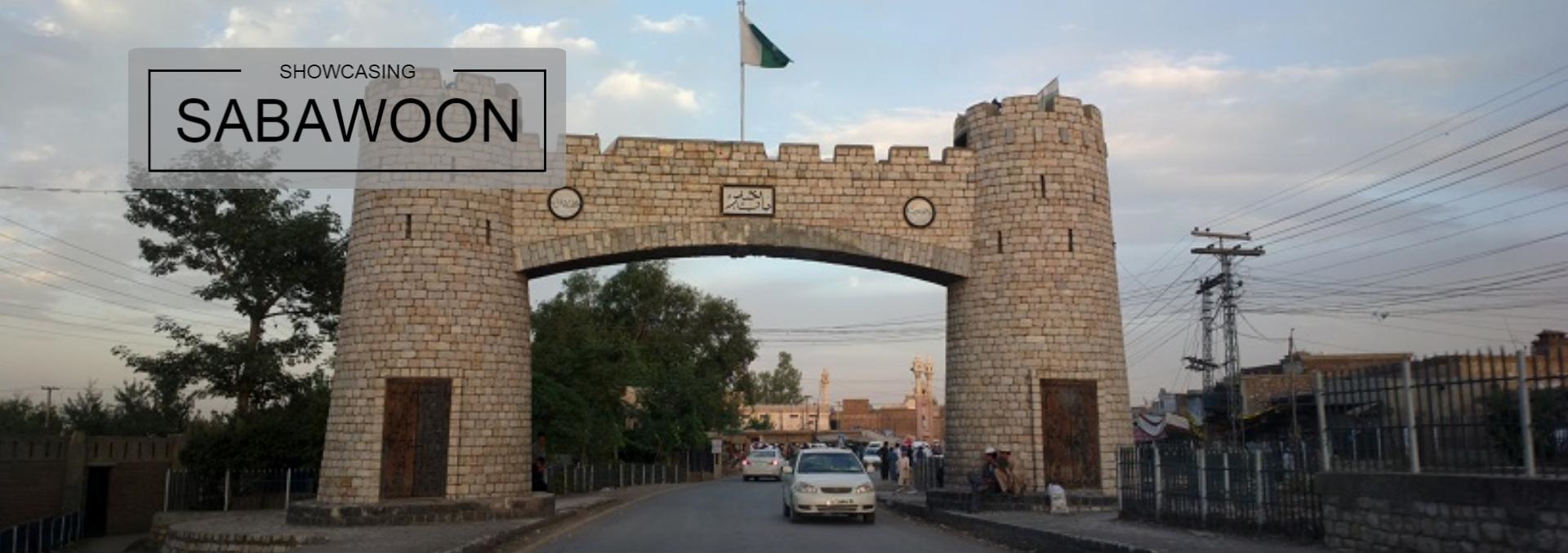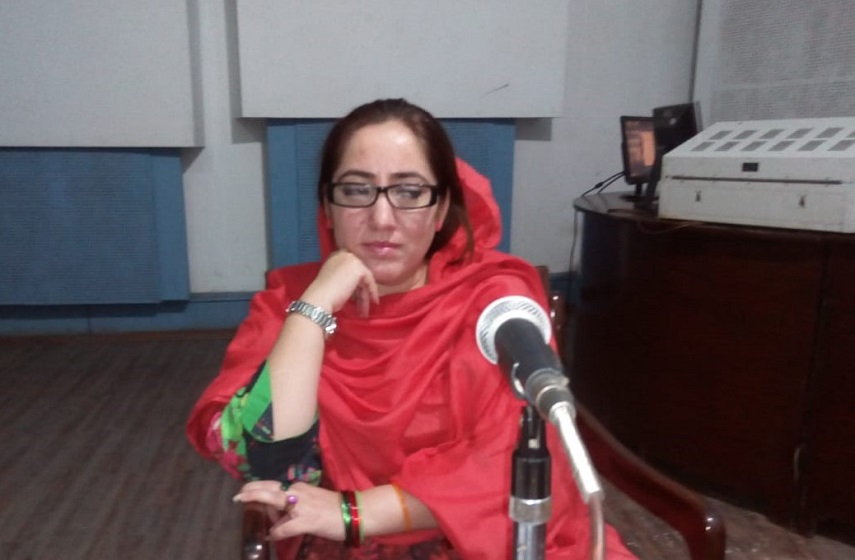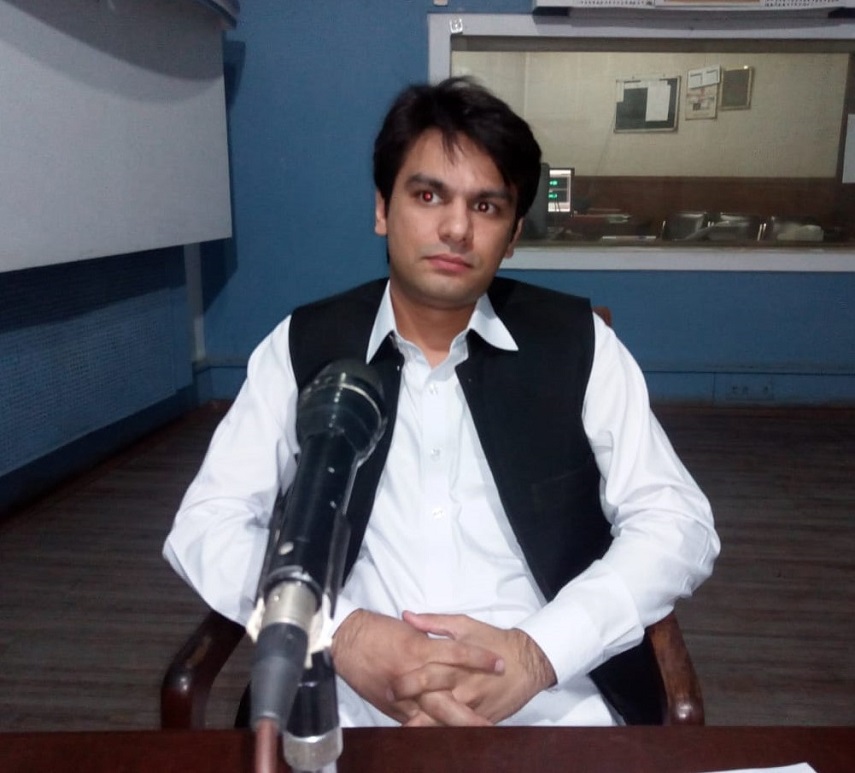Child Marriage Legislation and Challenges
The latest episode of Ranra (Light) highlighted the issue of child marriage and the existing challenges in coping up with this social issue. Child marriage does not only present a negative image of the society, but also deprives young girls of their basic rights.
 The guests on the show, Mr. Hamad Ramzan, an advocate and Ms. Salma Khattak, shared that child marriage is a custom that is still practiced all over the country especially in rural and underdeveloped areas of Pakistan.
The guests on the show, Mr. Hamad Ramzan, an advocate and Ms. Salma Khattak, shared that child marriage is a custom that is still practiced all over the country especially in rural and underdeveloped areas of Pakistan.
Ms. Salma noted that poverty is the main reason behind child marriages as a major proportion of the population is living below the poverty line. The other reasons are our customary practices like Swara (a young girl is married as punishment for a crime committed by her male relatives to end the enmity) and Satta Wata (exchange marriage) under which young girls are forced to marry to end an old feud. There is inequality when it comes to focusing on the health and education of female children as more focus is given to the male child and this is also a contributory factor for child marriages.
While talking about legislation she added that legal bills, especially relating to women’s issues, are often sent to the Council of Islamic Ideology for revision and it usually results in uncalled delays in the process of bringing it to the parliament. The percentage of early marriages remains high in girls as compared to boys. She elaborated that in tribal districts over 70% of girls get married before they reach the age of 18, exposing them to physical and psychological problems.
Mr. Hamad Ramzan said that due to this illicit practice young women remain unable to continue their learning or they may be forced to stop education. While discussing the effective implementation of child marriage laws he said that unfortunately most of the cases of child marriages happening remain unreported due to ignorance among the local communities. He said that people need to realize that without raising our voices against this social issue we cannot stop this. Pakistan is committed to eliminating child marriages under the Sustainable Development Goals (SDGs) but for this it must take tangible steps besides doing effective legislation and implement laws.
The report by Mr. Abdurazak and respondent Ms. Amina Durrani from The Khyber Pakhtunkhwa Commission on the Status of Women (KP PCSW) showed that the Federal and Provincial governments are on the same page regarding the child marriage bill and they are committed to approving it. The proposed draft has been moved to the Law Department and soon this may be tabled in the provincial assembly for approval. The minimum age for marriage shall be 18 years as per the proposed bill.
The report by Mr. Rehan looked at the social aspects of child marriage.
About Sabawoon:
Sabawoon airs in Khyber Pakhtunkhwa (KP) and Federally Administered Tribal Areas (FATA) since 2011. It began as a counter-radicalization, strategic communications program, designed to highlight and promote the fundamental governance values such as democracy, rule of law, women’s rights, and equal citizenry, social cohesion.
The show airs Tuesday through Thursday every week under four themes on FM-101.5 Peshawar and Dera Ismail Khan 711 kHz from 3:20 PM to 4:00 PM.
On Tuesday, Jarga Maraka covers current affairs and important regional issues with input from government and other senior officials. Jwandai Jazbey airs on Wednesday and deals with issues of relevance to, and significance for youth, students and women. Socio-cultural and female issues are discussed in Ranra on Thursday.
The primary objective of the show has been to underline the criticality of constitutionalism, fundamental rights, public accountability and the rule of law for countering extremism illegalities of all forms.



